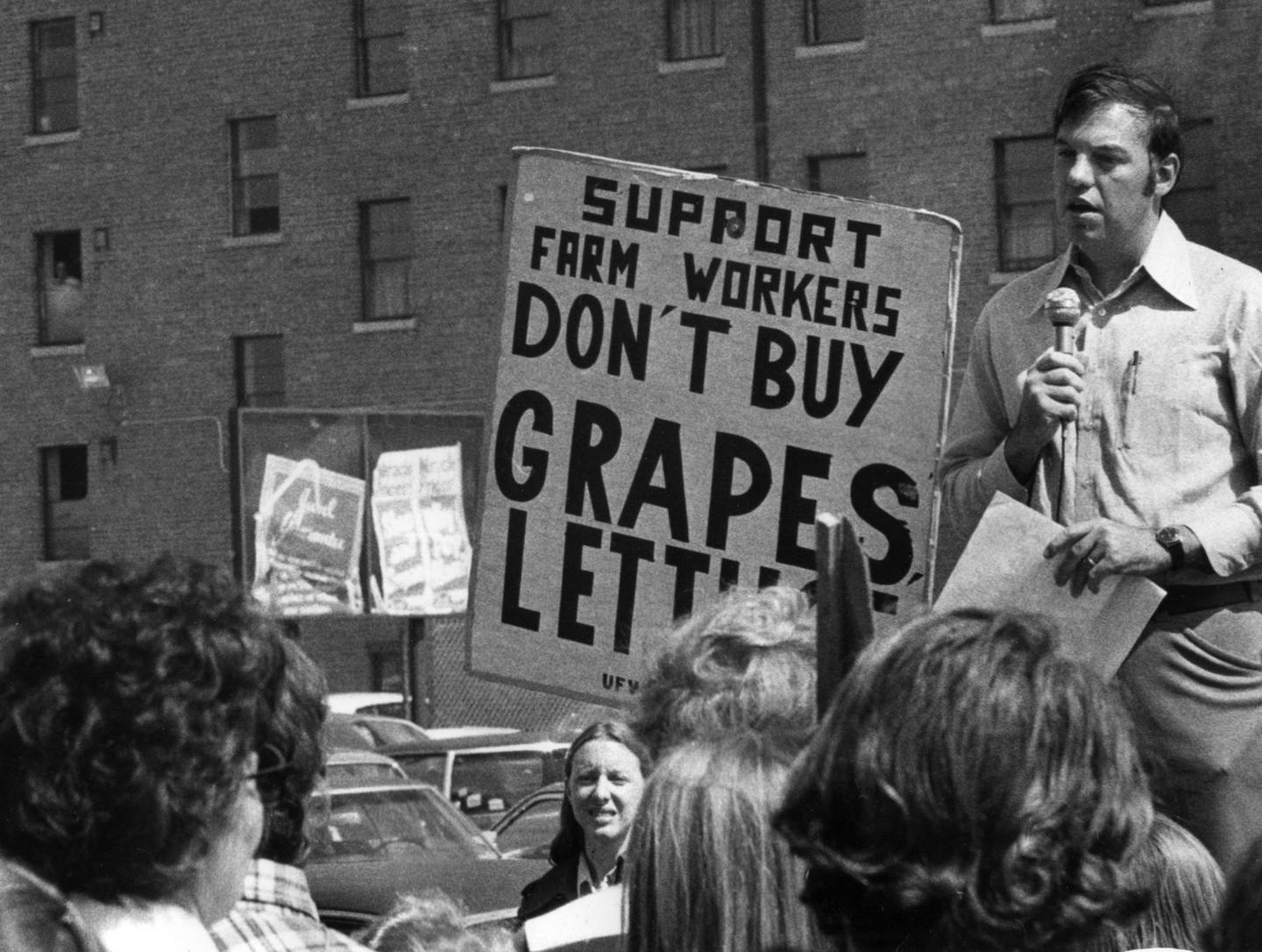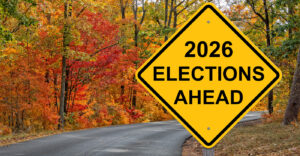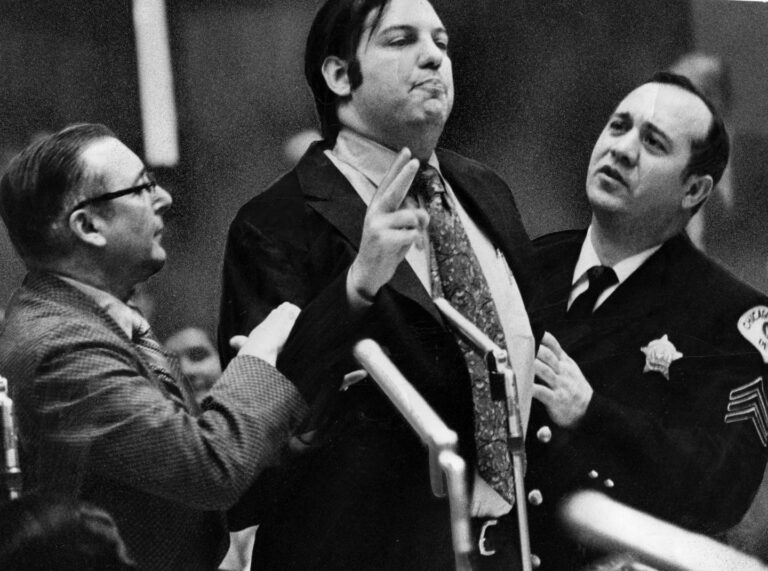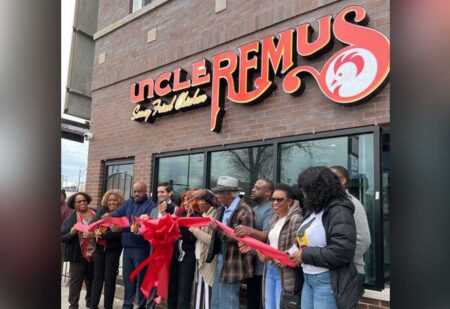Dick Simpson has been an institution within an institution for 55 years as a professor at the University of Illinois at Chicago. Simpson, UIC professor emeritus of political science, has thrived in Chicago’s political and academic spheres over the decades as:
- 44th Ward Alderman from 1971-1979
- executive board member of the Illinois Political Science Association
- a former congressional candidate
- political consultant, author
- transition team member for the likes of former Attorney General Lisa Madigan, former Mayors Jane Byrne and Harold Washington
- and a campaign contributor to then-Cook County Commissioner Jesus “Chuy” Garcia when he ran against Rahm Emanuel for mayor and Mayor Lori Lightfoot
As he wrote in the preface of his 2017 memoir, “The Good Fight: Life Lessons from a Chicago Progressive,” “I know how the sausage is made, because I’ve been a sausage-maker.”
Advertisement
“If Chicago politics has a conscience, it is embodied in Dick Simpson,” said former Chicago Tribune publisher, editor-in-chief and Pulitzer Prize winner Bruce Dold. “Going back to his City Council days, it wasn’t that he and other independents could pull off legislative victories. It was that, fortunately, there was a small band of thoughtful people who thrived on standing up to power. They provided what little check there was on the authority of Richard J. Daley. Dick Simpson, Abner Mikva, Bill Singer, Marty Oberman, they were pretty fearless. The thing with Dick is, he has remained a trusted critic for decades.”
Simpson retired this year from UIC and the politico/activist that shone a light on local political corruption for years was honored by college alumni last week , for his body of work and advocacy on behalf of American democracy. Having seen the rubber stamp City Council among mayoral tenures, as well as the Council Wars (1983-1986) firsthand, it’s easy to see why time and again, Simpson tasked the public, voters, and residents to return to government by the people, not over the people.
Advertisement
We spoke with Simpson about his transition from the front row seat he’s held all these years and found that the words that he wrote in 2017, “I would like what wisdom I have gained to flow into the world. To help us all in the good fight,” remain true. The interview has been condensed and edited for clarity.
Q: Teaching for as long as you have at UIC and the institutional knowledge that you have about the city, when people remember Dick Simpson, what do you think they’ll remember most?
A: I’ve always seen my role as primarily a teacher, even though I’ve been a political leader and an author. I see my books as part of my teaching, and my media presentations as part of teaching, it’s just teaching in different ways. Also, my role as an ordained minister for 20 years are all part of teaching in one way or another. I see my identity as teacher. Other people see me in different ways.
Q: Is there anything that people don’t know about you?
A: I’m sure there are a lot of things. For instance, now that I have a little more time, I’ve been able to take up piano again with lessons at Old Town School of Folk Music. Family is important and I’m lucky that my daughter and her family have moved back to the Chicago area from Vermont.
Q: What will you miss the most in your former professional roles?
A: From UIC, probably the teaching. Although it’s possible, I’ll end up going back occasionally to teach a future class but that’s very uncertain. I won’t be teaching full time. I assume my last book will be out next year and I probably won’t do more books but I don’t really know. I do still like to be involved in politics and government. And I’m glad when I have the opportunity to do it.
Q: Are you on anybody’s roster to help this election season?
Advertisement
A: Yes, I am. I’m on Lightfoot’s finance committee. I’m trying to help her get reelected. I will help almost any aldermanic candidate that comes and asks about how to run their election or if government officials, aldermen or others are trying to implement some policy or program and I can help with advice, I will give it. I’ve always viewed that across partisan lines as part of my role as teacher that the state of Illinois paid my salary to be a mostly free consultant most of the time to people in politics and government. … I wouldn’t provide advice for someone who was advocating a white supremacist or fascist kind of program, but I’ve advised Republicans and Democrats, independents for the last five decades.
Q: What does retirement look like for you? More books, travel?
A: I have two more books in the pipeline, one in late September, which is the third revised edition of 21st century Chicago. And I have a book that’s coming out this time next year called “Modern Mayors of Chicago.” And it goes from Harold Washington to Lori Lightfoot with a chapter on each mayor written by whoever the best expert on that mayor is that we knew of. I think will be interesting right after the 2023 election.
Q: What are your thoughts on all these longtime aldermen retiring, as a former alderman yourself, is this a good thing?
A: We’ve had two other major periods where a large number of aldermen were retired and replaced. The first was at the end of Council Wars, with the 1983 and 1987 elections. I think many of the aldermen are retiring now because like everyone else, they’re sort of burned out by the COVID-19 period, it was very hard to run their offices, to handle city services. They had to learn new technologies like Zoom, like all of us did. And a number of them have been in office for a very long time. In terms of the City Council, as best I can tell, the retirements are not likely to change the balance. A North Side alderman, several of whom have retired like Michele Smith, will be replaced by other moderate liberal aldermen that probably won’t be made committee chairman like many of them have been. But Scott Waguespack will continue to be the most important member of the City Council as head of the Finance Committee so the North Side will still have basically the same kind of aldermen. The rest it’s hard to tell exactly who’s going to win the elections in the various wards. I think the big issue will be whether as many progressive aldermen get elected the next time around, and most of the retirements aren’t from that bloc.

Q: What are your thoughts about voting precincts being closed before the November election? Isn’t anything less, when it comes to voting, a bad thing?
Advertisement
A: In general, that’s true, but we have two major changes in Illinois. The first was automatic voter registration, which meant that registering voters was immensely easier. And that happened at the same time with opening up the early voting sites. The second that’s really major is the mail-in ballots. You no longer have to give an excuse like ‘I’m gonna be out of town’ or ‘I’m sick.’ The increase in the voting by mail is huge. It also changes the way we run campaigns because now you have to peak your advertising and contact with the voters a month early instead of waiting until the last two weeks, which was the tradition. I think it would be better not to have proposed to close quite so many precincts, but I’m not sure that’s going to be the main question. The main questions are whether we will develop more participatory neighborhood government and whether we will find more ways for citizen input and policymaking. The link for the administration has opened some of those paths, but they’ve not opened up neighborhood government and we don’t have a regular channel other than the budget hearings for voter impact. That’s going to be very important in the next four years that we require something like neighborhood government and that we require better channels of communication with City Hall for the voters to directly affect policies and effective decisions by departments.
Q: There’s work being done in terms of Bronzeville lakefront development. What are your thoughts about how that’s coming along?
A: There are three new major neighborhoods that are going to be created in the next decade in Chicago — the Lincoln Yards, Neighborhood 78 on the Near West Side, and the former Michael Reese Hospital area in the Bronzeville area. One problem is there isn’t a uniform system for allowing input. Take the Lincoln Yards example. Community and the aldermen fought very hard to get more public parkland built into the proposal and while they made some gains, that really didn’t happen in the way that the communities or the aldermen in the area wanted. The others I’ve followed less closely. But what bothers me most is that it takes a vote by the plan commission, a vote by the City Council, but it doesn’t require any particular level of community participation. And we’re talking about building three new towns that are each more than 20,000 units of commercial and riverfront developments. These would seem to be projects — because they’re so massive — that should have a regularized participatory structure to allow partaking neighborhood concerns into their development. Because they will have profound effects on the neighborhood.
I learned back in my aldermanic days that we have to create these structures (regularized participatory structures) by law. When I was alderman, I gave power to citizens in the 44th Ward. We had a ward assembly, a community zoning board, and a traffic review commission. And I simply pledged my vote to the outcome of their decision making. Citizens won’t participate unless they know there’s actually going to be an impact. They won’t attend a town hall meeting forever unless there’s a guarantee that their vote in the end is going to make a difference. So you have to embed this in law. They’ve done it in many American cities. Washington, D.C., has a strong neighborhood council system. New York has a strong school council system and so forth. Other places around the world have even better systems. Because we were governed by the machine for 150 years, we have never created a legal system that guarantees citizen participation rights and a structure that’s permanently there that they can use to have their views known and effective.
Q: We’re losing a lot of elders who served as community organizers and activists during the civil rights movement. Are there proteges out there to carry the torch for a more participatory democracy?
A: One of the courses I taught at the university was the political science internship program. And in fact, we’re starting a fund to be able to provide stipends for political science students who couldn’t otherwise afford to be interns because they have jobs to get through college. I’ve had students hold positions from the county board to ambassador, senator, presidential candidates. I’m impressed with the fact that there’s still this desire on the part of many people that I’ve seen as students to go out and change the world in positive directions. So yes, we lose elders. And I’m sure I will pass away before too many years, but we do have a large cohort not only of elected officials behaving much better in office, but a cadre following behind them and future generations who want to change the world.
Advertisement






